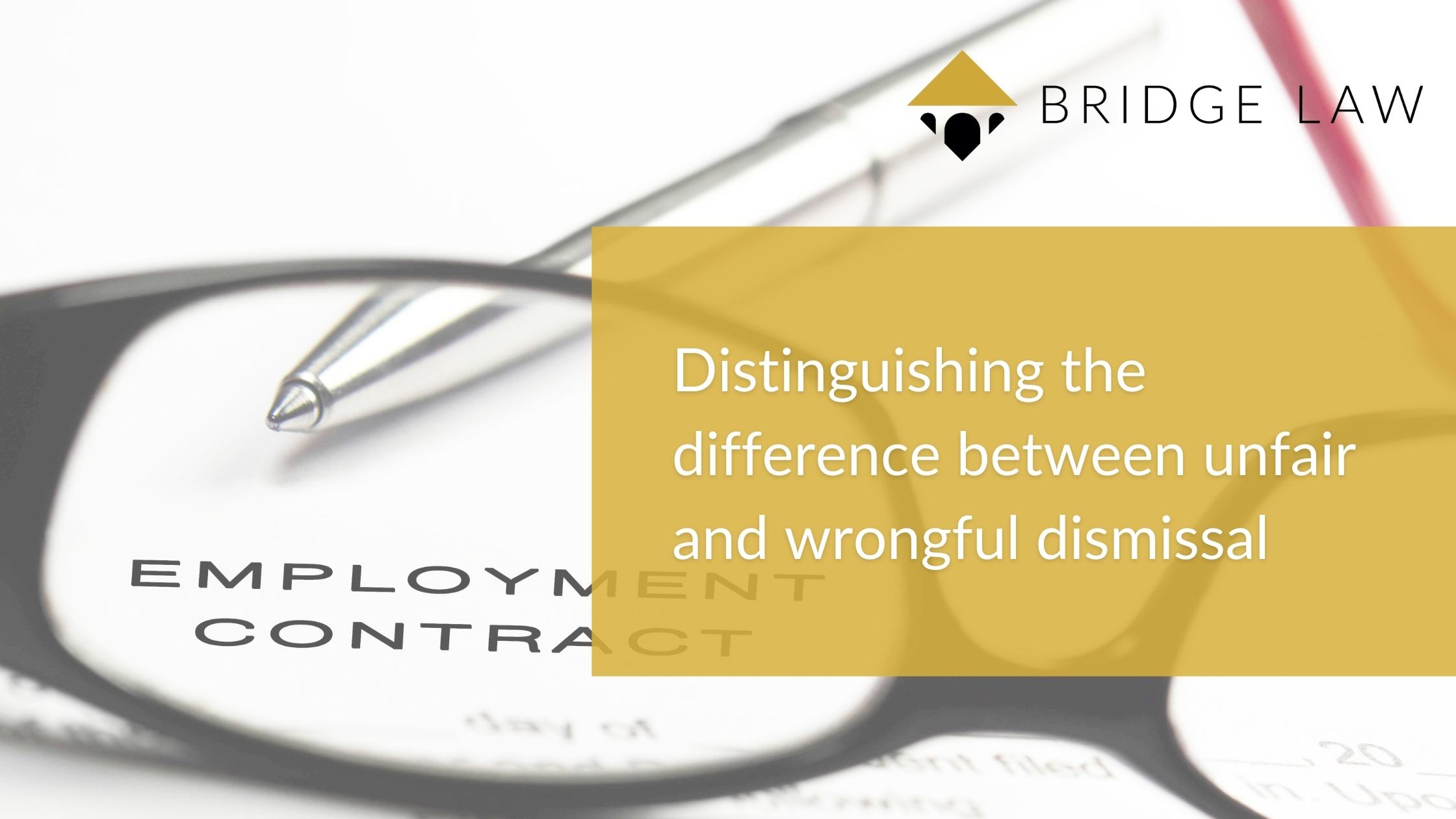Distinguishing the difference between unfair and wrongful dismissal

The many different terms used in employment law can be confusing. When it comes to unfair and wrongful dismissal, many people are unaware of the difference and their legal rights. In this article, we clarify the key differences.
What classes as unfair dismissal?
To be eligible to claim unfair dismissal, an employee must have been an employee for two years.
If an employee suspects their dismissal was unfair, to bring a claim, they must prove that they had been dismissed without their employer giving a fair reason for dismissal. They must also show their employer hadn’t conducted the dismissal process in an unreasonable way, in relation to the situation which led to the employee being dismissed. For example, not investigating a complaint against an employee, not following disciplinary procedures, not giving enough notice etc.
How does wrongful dismissal differ from unfair dismissal?
There are some misconceptions that unfair dismissal and wrongful dismissal are the same thing, this is not the case.
Unlike unfair dismissal, wrongful dismissal is different due to the fact it focuses on a clear, contractual breach. Another key difference is that you do not have to be employed for two years or more to bring a wrongful dismissal claim to an employment tribunal.
Common reasons for wrongful dismissal claims are; failure to provide the specified length of notice in the employment contract, or failure to provide the correct amount of statutory notice.
Another key difference is, that wrongful dismissal is actually a contract law issue, therefore a claim can also be pursued in the civil court, extending the limitation period for when a claimant must apply to court.
In many cases, employees are eligible to apply for unfair and wrongful dismissal cases in tandem. It is also recommended to seek professional legal advice to determine the best course of action when bringing an unfair dismissal, wrongful dismissal or tandem claim.
What to do if you suspect unfair or wrongful dismissal
Firstly, to prove unfair dismissal, you must be able to determine whether the employer has in fact behaved in a manner that is deemed legally as unfair. You can learn more about what classes as a fair dismissal, and the steps employers must take in our recent blog ‘When can an employer legally dismiss an employee?’
To prove wrongful dismissal, you must be able to show there has been a breach of your employment contract, this is easier when contracts are written however, you still have statutory rights, such as a statutory notice period within a verbal contract.
In such cases, it is recommended you seek legal advice to assess your claim before bringing a claim to court. An employment law specialist can confirm whether or not you are correct in your belief that your employer has acted unfairly or wrongfully, and provide a realistic view of the likelihood of your success at court.
If you are seeking advice on an employment law claim, speak to our specialist employment law team on 0161 427 0084 (Marple Bridge office), 01484 442 700 (Holmfirth office) or email: info@bridgelawsolicitors.co.uk.
Written by Nikki Sharpe

